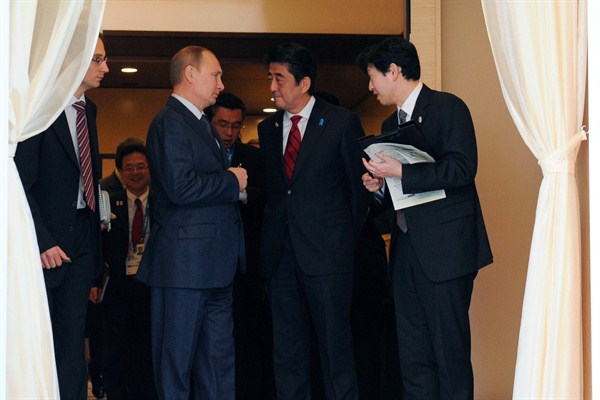One of Japanese Prime Minister Shinzo Abe’s main objectives since returning to office has been to improve relations with Russia, a goal also sought by Moscow. Both governments want to enlarge their diplomatic options and gain leverage with third parties as well as achieve mutually beneficial bilateral economic and energy deals. The two sides’ territorial dispute over the Russian-administered Southern Kurils, which the Japanese call their Northern Territories, has long stood in the way of improved ties. Because of the dispute, for instance, Japan and Russia have yet to sign a peace treaty formally ending the state of war between them dating back to World War II. More concretely, the dispute and its fallout have prevented both sides from realizing mutual security and economic interests and helped relegate them to the periphery of Asian politics.
Now the two countries have an opportunity to change matters. For the first time in decades, Russia and Japan both have strong leaders with solid nationalist credentials who could negotiate a territorial compromise and then sell it domestically. Any agreement would likely require that each accept control over fewer than all four islands in return for a peace treaty, stronger economic relations and enhanced diplomatic ties.
Yet numerous obstacles have long made it difficult to attain such an agreement. Both sides’ historical and legal claims have become largely irrelevant, as the territorial question has become transformed into one of competing national interests aggravated by national prestige, diverging priorities and nationalist public opinion, all of which combine to make it hard for elected politicians to compromise. Various proposals to divide control of the islands or establish a creative shared sovereignty arrangement have never gained decisive support in both governments simultaneously. Whenever one side seemed prepared to make a deal, the other party declined in the end to endorse it.

